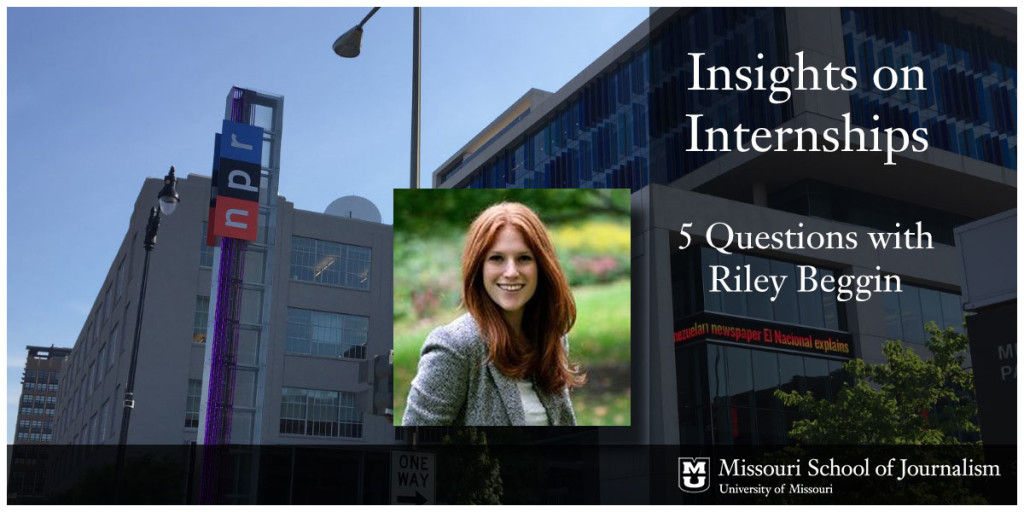Insights on Internships: 5 Questions with Riley Beggin

Columbia, Mo. (July 12, 2016) — Meet Riley Beggin, a second-year graduate student studying investigative reporting and radio reporting. She is interning at NPR in Washington, D.C., on the investigative unit. (Interview by Sophia Lauriello and Chad Brewster)
Where are you interning, and what are you doing?
On a day-to-day basis at NPR, I’ve been helping out with whatever the investigative team needs, such as booking studios and organizing behind-the scenes details. I do background reporting and call sources, trying to get information that is useful to the investigation.
What’s your favorite thing about this internship?
The opportunity to learn from some of the best people in the industry: NPR is a leader when it comes to radio in pretty much every form. Their content is incredibly popular both with on-air shows like Morning Edition and All Things Considered and online. Their podcasts are almost always at the top of the iTunes charts. I am interested in how we can take investigative stories and turn them into driveway moments, those stories that just grab you and don’t let you go so that you have to hear the end of it. It’s cool to see how the people at NPR are taking these ideas and putting them into practice. There’s a lot of things that go into making a story like that – great production, reporting and creative writing are just a few. Then the other thing is that the internship really hands on. I’ve been able to do a lot of work, and I feel like I am contributing to something real, something worthwhile.
What is one course you’ve taken at Missouri that prepared you for this internship?
The one that prepared me the most was Investigative Reporting with Associate Professor Mark Horvit. Anyone who is interested in investigative work should definitely look into taking that class. Mark has served as executive director of Investigative Reporters and Editors, which is headquartered at the School. He’ll be leading the School’s State Government Reporting Program in Jefferson City this fall.
What else have you learned at the J-School?
The experience I’ve gotten is super important; I definitely would not be able to do what I do on a day-to-day basis without the things I learned at the journalism school. Working in the KBIA newsroom prepared me for understanding how radio newsrooms work. KBIA does a really good job allowing us to do creative reporting while also showing us the nuts and bolts of radio. I also took the basic reporting class through the Columbia Missourian and that was like my Reporting 101. I obviously knew how to form relationships with people before Mizzou, but the Missourian made it imperative that we get to know people in the areas that we were covering. So I learned a lot about “source building” and also how to write effectively when working remotely in Jefferson City.
Any advice for current students?
Be as friendly as you can to as many people as possible. That’s general life advice, I guess. I wouldn’t have gotten this internship without being friendly and making connections. This January I did the computer-assisted reporting boot camp and it was me, two other students and 15 full-time journalists. One night at dinner the journalists asked the students what we wanted to do. It turned out that one of the women at the table had worked at NPR. We started talking more, and she ended up recommending me to the current NPR investigative editor. Plus, people want to work with friendly people and help them get to their goals. So, yes, be really nice to other people.
Updated: September 29, 2020